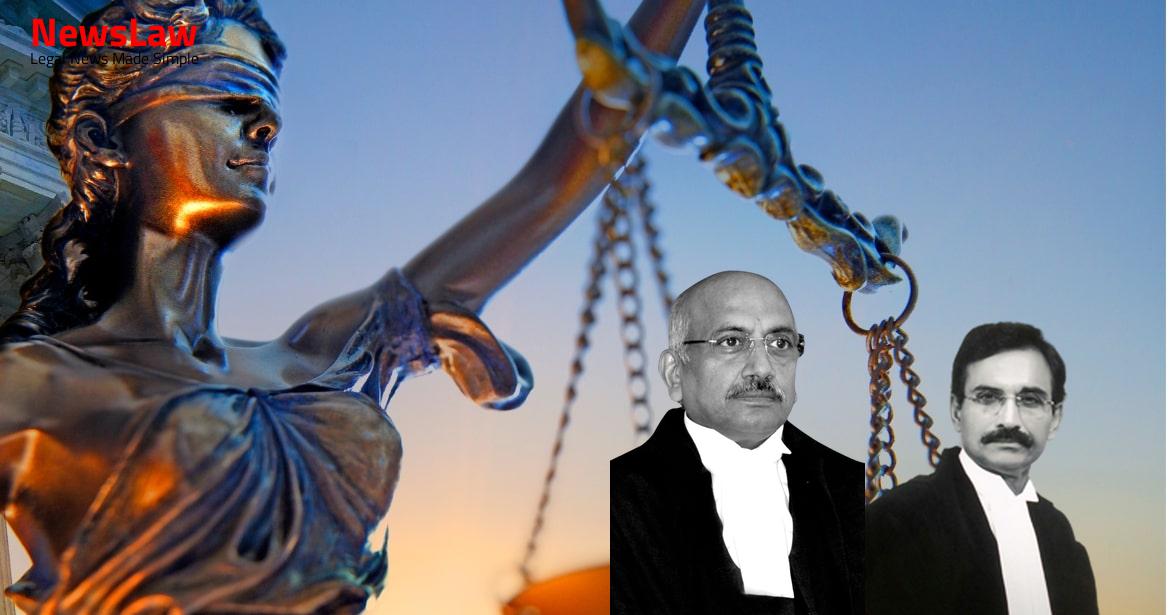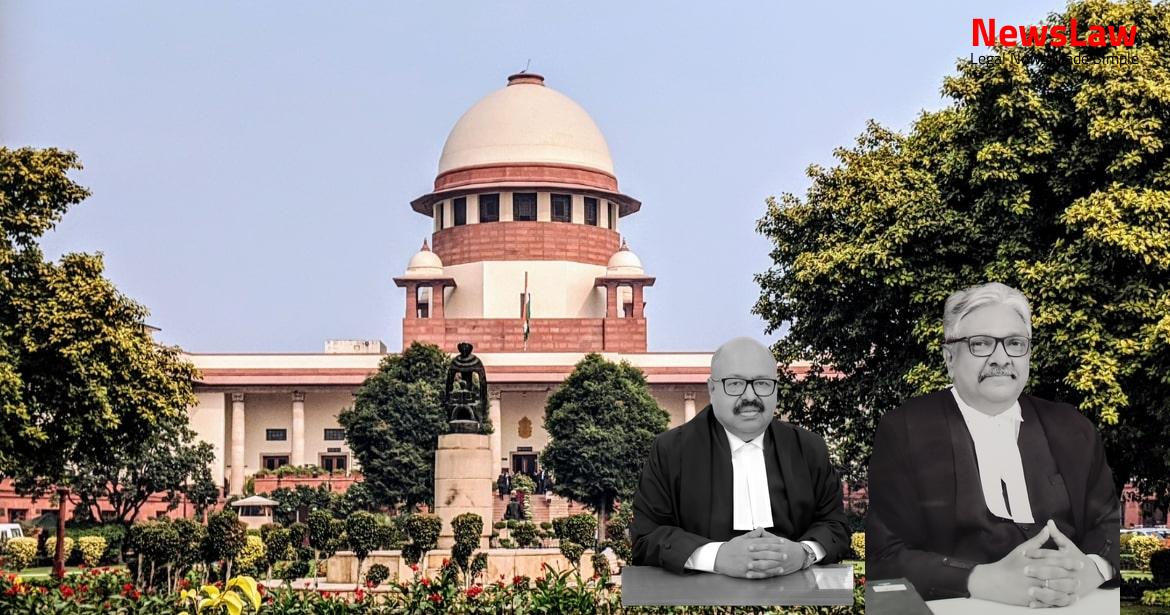Explore the detailed examination of jurisdiction and authority of the Commercial Court in a recent legal case. The High Court’s analysis sheds light on the complexities of transferring suits and determining the appropriate forum for resolving commercial disputes. This summary focuses on the legal intricacies of the court’s decision-making process.
Facts
- The plaintiff/ respondent filed a suit for declaration and permanent injunction against the appellants.
- The appellants were restrained from copying or using the plaintiff’s registered designs of Container and Lid.
- The defendant/ appellant filed a written statement and counter-claim seeking cancellation of the registered designs, alleging lack of novelty or originality.
Also Read: Judicial Review of Answer Key in Teacher Selection Process
Issue
- High Court examined whether the suit proceedings should be transferred to High Court or decided by Commercial Court at Indore.
- High Court deliberated on the competence of Commercial Court to handle the matter.
- Issue revolved around the jurisdiction and authority of the Commercial Court in the case.
Also Read: Legal Analysis on Admission Denial and Seat Creation in Medical College Case
Arguments
- Mr. Assudani, learned counsel for the respondent, relied on the order in Godrej Sara Lee and Whirlpool of India v. Videocon Industries Ltd. to support the order passed by the High Court.
- The arguments presented by Mr. Assudani were considered during the hearing.
Also Read: Equitable Treatment in Time-Bound Promotions
Analysis
- The expression ‘shall be transferred’ was interpreted to mean ‘shall stand transferred’, leaving the District Judge with no jurisdiction except to ensure the physical transfer of case records to the High Court.
- The High Court, citing precedent cases, concluded that applications for cancellation of design registration should be exclusively heard by the Controller, as appeals from the Controller’s decision would then be heard by the High Court.
- The Bombay High Court in a separate case was involved in addressing claims against the Defendant for design infringement, passing off, and damages.
- The State Government, after consultation with the concerned High Court, can constitute Commercial Courts at District level for handling commercial disputes.
- The State Government can also specify the pecuniary value for the jurisdiction of these Commercial Courts.
- The local limits of the area to which the jurisdiction of a Commercial Court shall extend can be specified by the State Government after consultation with the concerned High Court.
- Persons with experience in dealing with commercial disputes can be appointed as Judges in the Commercial Courts.
- Commercial Appellate Courts at District Judge level can be designated by the State Government for cases that need appellate review.
- Suits and applications related to commercial disputes of a specified value in High Courts shall be heard by the Commercial Division of that High Court.
- Special enactments like the 2015 Act have an overriding effect, and their provisions shall be heard and disposed of by the Commercial Division of the High Court.
- Section 22 of the Act provides a cause of action only when a registered design is being used.
- Section 19 affords a cause of action where mere registration is considered objectionable.
- The remedy under Section 22 is only available when the impugned design is being used.
- Appeal against cancellation of registration lies with the High Court, distinct from original jurisdiction.
- District Court can only assess if grounds for cancellation under Section 19 are availed of.
- If defense under Section 19 is raised, the case must be transferred to the High Court.
- Court of District Judge in Indore is designated as a Commercial Court.
- Commercial Dispute must be instituted before a Commercial Court.
- Commercial Appellate Division is required to be constituted under the Act.
- Provisions of the 2015 Act take precedence over inconsistent provisions of other laws.
- Transfer of suit from ordinary jurisdiction to Commercial Division is a ministerial act if there is a prayer for cancellation of the registration.
- Delhi High Court entitled to assume jurisdiction only in appeal regarding cancellation of designs.
- Independent provisions under Section 19 and Section 22 of the Act give rise to different causes of action.
- The suit is liable to be transferred to Madhya Pradesh High Court, Indore Bench as no part of the cause of action has arisen within the jurisdiction of Kolkata.
- The distinction between Section 19 and 22 of the Act is highlighted, with Section 19 applicable to ‘any person interested’ and Section 22 available only to registered proprietors.
- The remedies under Section 19 and Section 22 are different and apply to different persons in different circumstances for different reliefs.
- The order of the Commercial Court at the District Level is in accordance with the law, but transferring the suit to Calcutta High Court is not deemed appropriate.
- The High Court where the cause of action arises, like in the case of Godrej Sara Lee, has the jurisdiction to entertain the suit.
Decision
- The order of the High Court is deemed not sustainable.
- The appeal has been disposed of accordingly.
- The previous decision is set aside.
- The case is remitted to the High Court of Madhya Pradesh, Indore Bench.
- The High Court is instructed to decide the suit in accordance with the law.
Case Title: S.D. CONTAINERS INDORE Vs. M/S. MOLD TEK PACKAGING LTD. (2020 INSC 668)
Case Number: C.A. No.-003695-003695 / 2020



